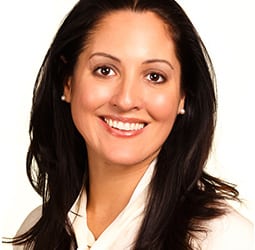 1. How has your past experience prepared you for your role at The Alliance?
1. How has your past experience prepared you for your role at The Alliance?
My legal and legislative background is with the telecom and technology communities, so it’s been exciting to apply what I have learned in those sectors to the news media industry. Transitions demand fast-paced business experimentation and the pivotal nature of the industry keeps everyone on their toes, the government in particular. Educating policymakers in Washington, D.C. is an opportunity for our members to be heard and make a difference in the regulatory landscape, which has a direct impact on their business. It’s truly a virtuous circle of innovation and thought leadership.
2. What does your day-to-day look like?
Most of my time is spent with member companies and industry partners, or up on Capitol Hill and with federal agencies in and around the Beltway. Personal interaction is necessary to effectively engage policymakers. Equally important is time spent researching and deliberating the best solutions with our member companies to effectively advocate their message and goals. Developing trusting relationships is extremely important to the role of any advocate and knowledge of the interests of the news media industry is essential, which is why I find it important to to keep abreast of industry developments.
3. What are your 3 goals for the Alliance in the next year?
The next year will bring a new Administration and a new Congress. After the election, a congressional lame duck session will conclude several must-pass items. Then, we will work with the Clinton or Trump White House to ensure we are factored into their “first hundred days.” At the outset, we will push for the repeal of the absurd 41-year-old cross-ownership ban that prevents a broadcast station (television or radio) from owning a newspaper in the same market. Restricting capital in today’s market does not make sense, and prevents us from achieving the scale that our companies need to compete. Over the next year, I will also focus on copyright protection and fair use. Our member companies must continue to receive a return on their massive investments in investigative journalism, and the outdated laws we are currently working with do not adequately address a digital environment that should protect their digital works the same as they would in the print world. Third, I will be focusing on some of the more intricate regulations that impact sharing of consumer data and privacy restrictions around the delivery of advertisements, a significant source of revenue for our industry. Other long-term issues such as tax reform and First Amendment issues will of course remain top priorities, and we will continue to run that marathon, while sprinting on the few that I mentioned at the top of the year.
4. What are the biggest obstacles facing our industry and how does the work you do at the Alliance help?
Our problem is not unique. For example, in my previous life with the telecom industry, Verizon and AT&T were forced to transition from landline to wireless, from analog to digital, from dial-up to fiber, and the list goes on. Most notably, the Internet has changed traditional products and services to everything-IP. The Internet has transformed how we communicate and function, not the least of which is the news media industry. Fortunately, there is no lack of consumer demand for news content; to the contrary, demand for content is consistently increasing. However, we do lack the ability to adequately monetize that content, and that problem will be solved by the competent leaders in this industry, just as it was with the telecoms. The public policy obstacles are in demonstrating to government officials the need to update laws that provide our companies the flexibility to experiment with various business models. The laws must also be updated to address digital distribution of content. The same investment, if not more, is being made on the digital side of our member companies’ operations but laws do not currently allow for the same benefits as those received when content is distributed in print. I strongly believe the Alliance will help update U.S. laws to better reflect today’s digital ecosystem.
5. What is something your coworkers would be surprised to learn about you?
I take hip hop classes on Tuesdays while my daughters are in gymnastics. No one ever got busy just sitting around.
